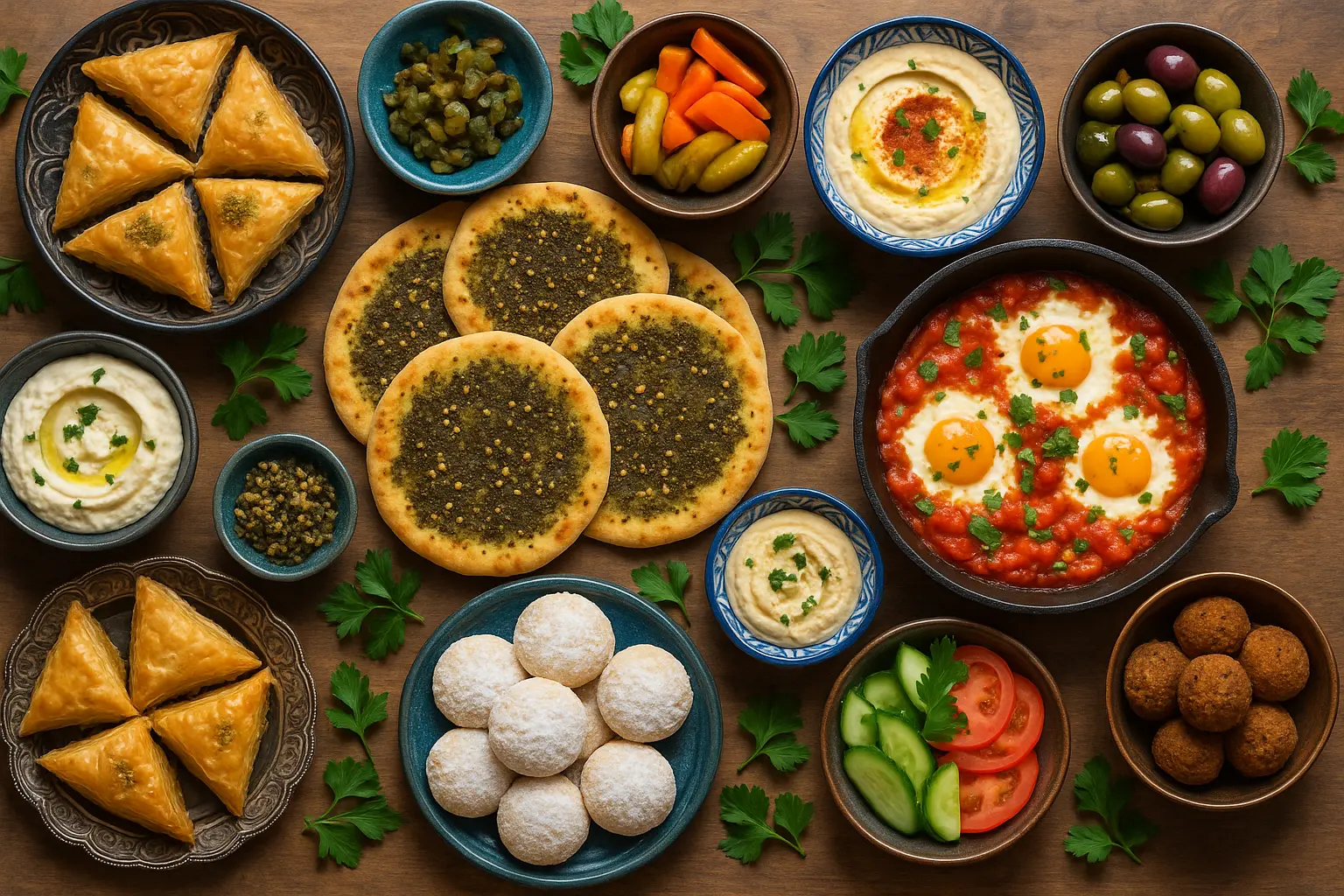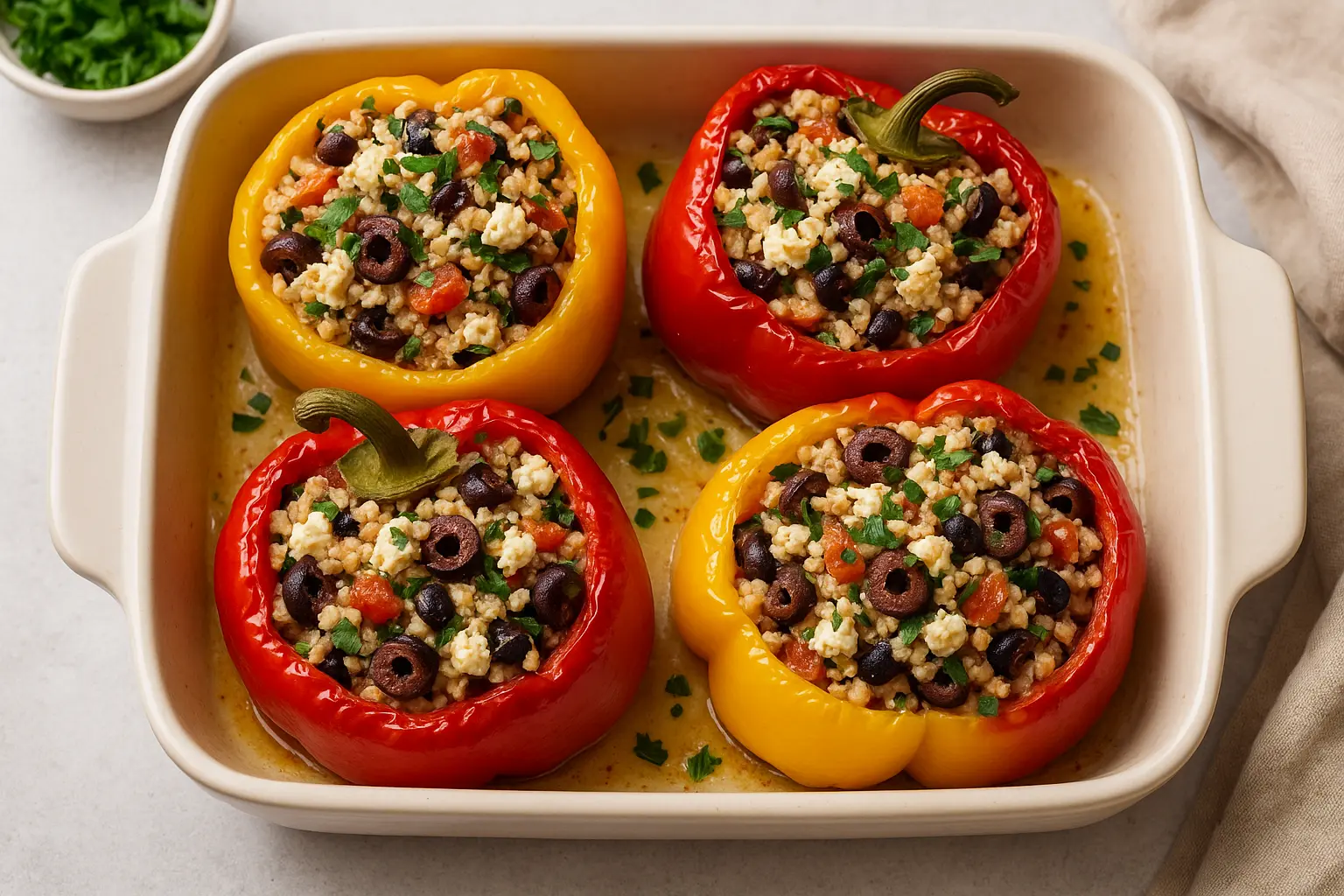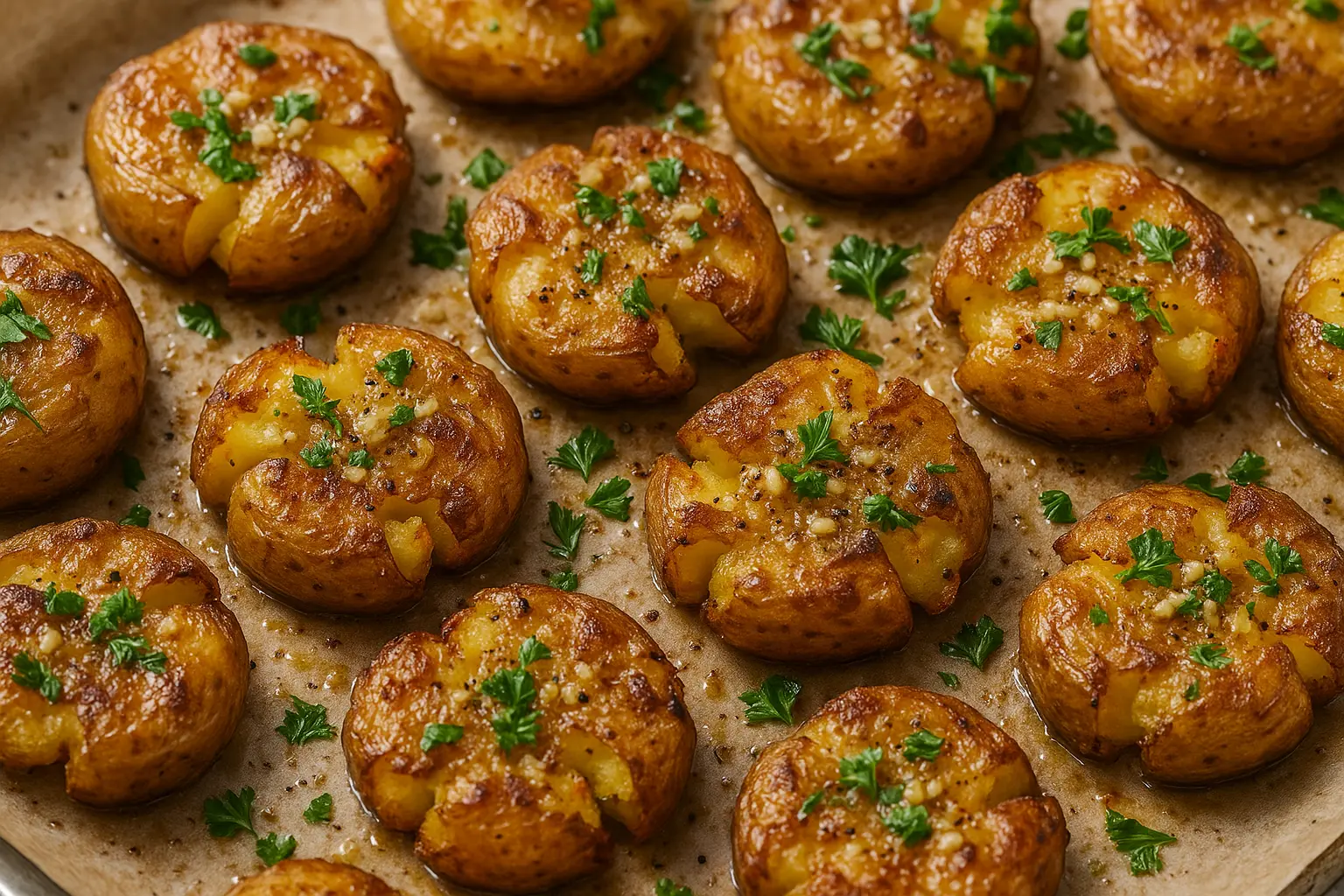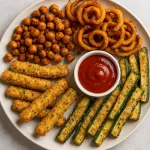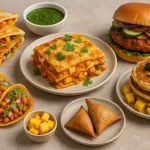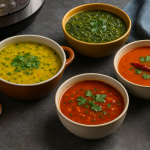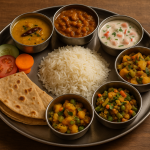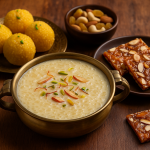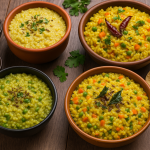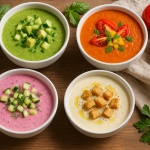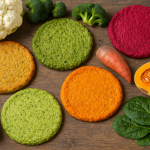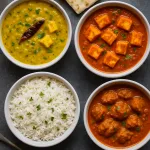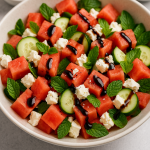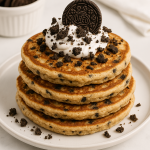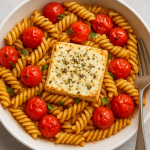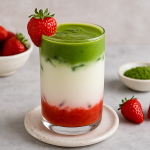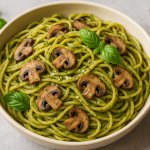Breakfast in the Middle East is never just about fueling the body—it’s about starting the day with abundance, family connection, and dishes that are layered with centuries of tradition. While many people associate Middle Eastern food with aromatic grills, mezze platters, and rich desserts, mornings in this region hold their own festive magic. From flaky pastries drenched in syrup to savory dips paired with warm bread, festive Middle Eastern breakfasts are designed for sharing, celebrating, and savoring.
In this article, we’ll dive deep into the world of festive Middle Eastern breakfast treats. We’ll explore iconic dishes, festive traditions, vegetarian-friendly options, and practical tips to recreate these breakfasts at home. Whether you’re preparing for Eid morning, a family gathering, or simply want to infuse your weekend brunch with exotic flavors, this guide offers both inspiration and detailed insight.
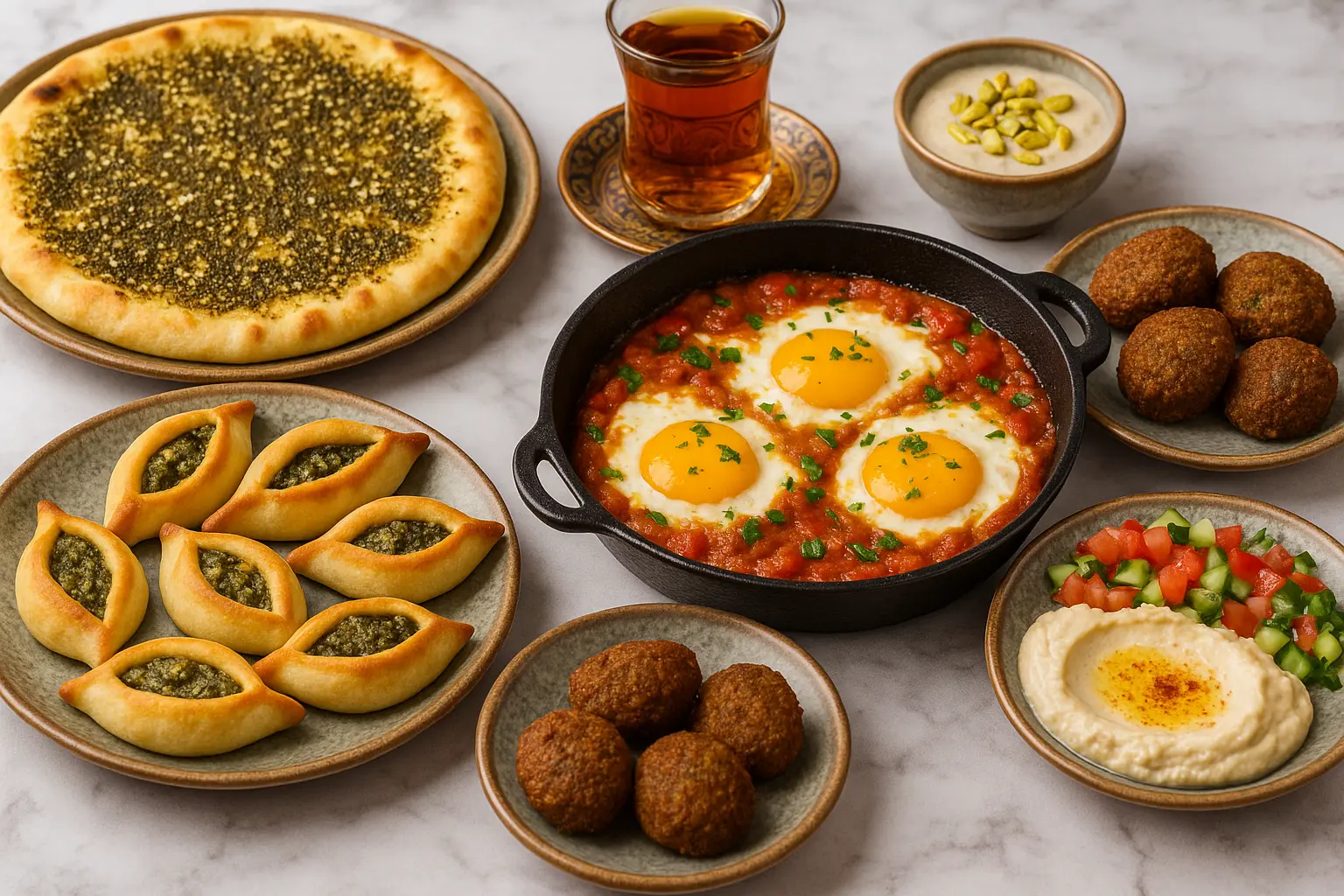
The Spirit of Festive Middle Eastern Breakfasts
Festive meals in Middle Eastern cultures carry a special meaning. Breakfast, especially during holidays like Eid al-Fitr, Eid al-Adha, or even Christmas and New Year’s in Christian and Armenian Middle Eastern families, is more than a meal—it’s a communal event. Families gather around large trays, sharing everything from sweet pastries to fresh cheeses and warm breads.
Hospitality plays a central role. No guest leaves without being offered tea, coffee, and at least a small plate of food. The festive breakfast spread often reflects abundance: multiple flavors and textures are placed side by side so that everyone can taste a little of everything.
Iconic Festive Breakfast Staples
Let’s break down the dishes you’ll often find on a festive Middle Eastern breakfast table.
1. Sweet Pastries and Desserts
Sweet treats are an essential part of Middle Eastern breakfasts during festive times.
- Baklava: Layers of filo pastry, nuts, and honey syrup. Though often eaten after meals, during festivals, it appears on the breakfast table.
- Ma’amoul: Semolina or flour-based cookies stuffed with dates, pistachios, or walnuts. Especially common during Eid and Christmas.
- Qatayef: Mini stuffed pancakes, filled with nuts or cream, fried or baked, then drizzled with syrup. A Ramadan and Eid favorite.
- Basbousa/Harissa: A semolina cake sweetened with syrup and topped with almonds or coconut, offering a melt-in-the-mouth sweetness to the morning spread.
2. Bread – The Centerpiece
Bread is sacred in Middle Eastern culture, often referred to as “a gift from God.” Festive breakfasts almost always include fresh, warm bread.
- Khobz (Pita Bread): Served warm, perfect for dipping or stuffing.
- Manakish: Flatbreads topped with za’atar, cheese, or meat. For festive mornings, za’atar and cheese variations are popular.
- Markouk: Thin, almost paper-like bread, often used to wrap festive spreads of labneh, olives, or falafel.
3. Savory Vegetarian Delights
While meat dishes are common in Middle Eastern celebrations, vegetarian spreads dominate festive breakfasts.
- Shakshuka: Poached eggs simmered in a spicy tomato and pepper sauce, served in a communal pan.
- Labneh: Strained yogurt, drizzled with olive oil and sprinkled with za’atar, eaten with bread.
- Hummus and Baba Ghanoush: Chickpea and roasted eggplant dips bring balance and creaminess to the breakfast table.
- Falafel: Though often eaten as street food, they make an appearance during celebratory breakfasts, paired with tahini.
4. Fresh and Pickled Sides
No Middle Eastern breakfast is complete without a variety of sides that add freshness and tang.
- Fresh vegetables like cucumbers, tomatoes, and radishes.
- Olives, black and green, marinated in herbs.
- Pickles of turnips, carrots, and peppers, adding a salty-sour kick.
Festive Beverages: The Perfect Complements
Middle Eastern breakfasts are incomplete without the ritual of beverages.
- Mint Tea: Sweetened black tea with fresh mint leaves is refreshing and cleansing.
- Turkish or Arabic Coffee (Qahwa): Strong, cardamom-flavored coffee served in small cups.
- Jallab: A festive drink made from dates, grape molasses, and rose water, often topped with pine nuts.
Regional Variations in Festive Breakfasts
Though united by flavors of olive oil, fresh herbs, and spices, Middle Eastern breakfasts differ across regions:
- Levant (Lebanon, Syria, Jordan, Palestine): Emphasis on mezze-style spreads—labneh, hummus, manakish, and fresh vegetables dominate.
- Gulf (Saudi Arabia, UAE, Oman, Qatar): More rice-based dishes, sweet breads like khubz, and heavy emphasis on dates and cardamom coffee.
- North Africa (Egypt, Morocco): Dishes like ful medames (stewed fava beans), msemen (layered flatbreads), and honey-drizzled chebakia pastries appear in festive breakfasts.
- Turkey: Expansive “kahvaltı” spreads, including olives, cheeses, menemen (scrambled eggs with peppers), and honey with clotted cream (kaymak).
Vegetarian Focus: Why It Works Perfectly
One of the best aspects of Middle Eastern festive breakfasts is how naturally vegetarian-friendly they are. Lentils, chickpeas, bread, vegetables, and dairy form the foundation of most dishes. From hummus and falafel to cheese-filled pastries and nut-based sweets, vegetarians are spoiled for choice.
This makes Middle Eastern festive breakfasts especially appealing for global audiences seeking plant-forward dining.
Recipes to Try at Home
Here are simplified versions of festive Middle Eastern breakfast recipes you can try in your own kitchen.
1. Shakshuka (Serves 4)
- Ingredients: Eggs, tomatoes, capsicum, onion, garlic, olive oil, paprika, cumin, chili flakes, parsley.
- Method: Cook onion, garlic, and capsicum in olive oil. Add tomatoes and spices; simmer to form a sauce. Make small wells, crack eggs into them, cover and cook until eggs set. Garnish with parsley.
2. Za’atar Manakish
- Ingredients: Pizza dough or homemade flatbread, olive oil, za’atar spice blend.
- Method: Spread dough, brush with olive oil, sprinkle za’atar, bake until golden.
3. Ma’amoul Date Cookies
- Ingredients: Semolina, flour, butter, sugar, milk, dates (for filling), rose water.
- Method: Knead dough, stuff with date paste, shape with molds, bake until lightly golden, dust with powdered sugar.
4. Ful Medames (Egyptian Fava Beans)
- Ingredients: Cooked fava beans, garlic, lemon juice, cumin, olive oil, parsley.
- Method: Mash beans lightly with garlic and spices, drizzle with olive oil and lemon juice, serve warm with bread.
Festive Traditions Around Breakfast
- Eid Morning: Families wear new clothes, pray, and then gather for an elaborate breakfast featuring sweets like ma’amoul and qatayef alongside savory mezze.
- Christmas in Middle Eastern Communities: Armenian and Arab Christians prepare pastries, breads, and spreads to share after morning church services.
- Weddings and Celebrations: A breakfast spread may be served as part of multi-day festivities, emphasizing abundance and sharing.
How to Recreate a Festive Breakfast Spread at Home
- Mix Sweet and Savory: Balance dishes like ma’amoul with shakshuka.
- Use Sharing Platters: Serve dips in bowls with bread in baskets, encouraging communal eating.
- Add Freshness: Always include herbs, fresh vegetables, and olives.
- Don’t Forget Drinks: A pot of mint tea or cardamom coffee sets the festive mood.
- Decorate the Table: Use colorful plates, patterned cloth, and small bowls for an authentic touch.
Health Benefits of Middle Eastern Breakfasts
- Balanced Nutrition: Protein from legumes and dairy, fiber from breads and vegetables, and healthy fats from olive oil and nuts.
- Plant-Forward: Many dishes are vegetarian, focusing on natural, whole foods.
- Herbal Boosts: Ingredients like mint, parsley, and za’atar offer antioxidants and digestive benefits.
Bringing Festivity to Everyday Mornings
While these spreads are often prepared for holidays, there’s no reason you can’t bring a touch of festivity to everyday mornings. Even adding one or two items—like za’atar manakish and mint tea—can transform a normal breakfast into a celebration of flavors.
Conclusion
Festive Middle Eastern breakfasts are more than meals—they are experiences. They embody hospitality, tradition, and joy, inviting everyone to gather, share, and celebrate. From sweet ma’amoul cookies to savory shakshuka, from refreshing mint tea to aromatic coffee, these treats connect cultures and generations.
By recreating these dishes at home, you can bring the magic of Middle Eastern mornings to your own table—whether for a festive holiday or simply a Sunday brunch with loved ones.
Leave a comment
Your email address will not be published. Required fields are marked *


